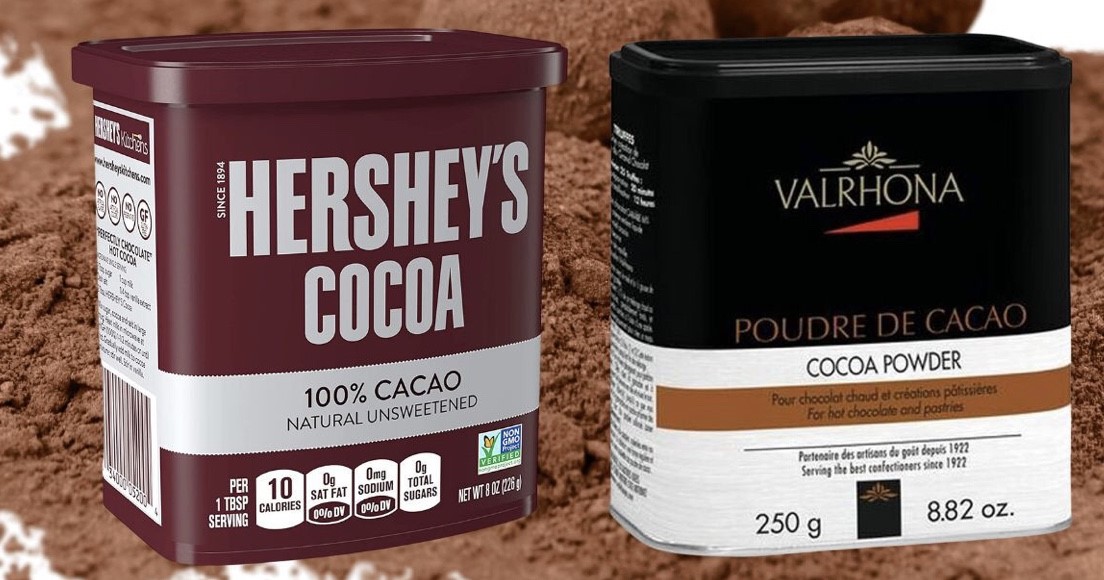
Depending on what kind of recipe you’re baking, using the wrong type can majorly mess up the chemistry. Cocoa powder is an essential baking ingredient. Our brownies, cakes and cookies would be nothing without it. The thing is, though, cocoa powder also can be kind of confusing. There are two types on the shelves of most groceries stores, natural and Dutch process, and are they sometimes interchangeable ― but sometimes not! Cocoa powder is the dry, solid remains of cacao beans that have been fermented, roasted and pressed. The shade and flavor of the cocoa powder can be different based on where it’s sourced from. There’s also variation in the quality of cocoa powder depending on the beans brands use. Hershey’s, although a classic, won’t be as high quality as, say, Valhrona, which is used by professional pastry chefs. Dutch process cocoa powder is different from its natural counterpart because it’s been alkalized. Potassium carbonate is added to change the pH. The pH can deepen the flavor and mitigate some of the acidic notes that are inherent in natural cocoa powder. As a result, Dutch process cocoa powder is typically a darker hue with richer. To learn more, click HERE.
